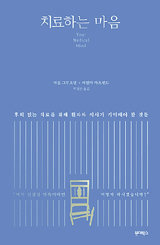Why don’t some patients listen to doctors?
Why don’t some patients listen to doctors?
Posted March. 19, 2022 07:22,
Updated March. 19, 2022 07:22

When a patient, who is already on diabetes and blood pressure medication, is told to start taking a cholesterol pill as well, the pressure the patient feels is more than just an addition of a pill. Patients will have to take the pills first thing in the morning and feel alarmed if they go out without the pills. The psychological problem, where they fall into despair by identifying taking a pill with gradually weakening, cannot be solved with the aid of pills.
Doctors often think patients fail to make rational decisions during treatment because they have a lack of accurate information. Even with accurate information, however, patients do not make the best choice. Even if there is a new medicine with much improved efficacy, patients think the existing medicine that has somewhat lower efficacy but has been tested for a long time is better.
According to the analysis of the authors, who are professors of medicine at Harvard University, there are six types of patients: The “minimalists,” who try to reduce any treatment as much as possible; The “maximalists,” who try everything they can for their health; The “doubters,” who cast doubt on doctor’s recommendations; The “believers,” who believe and follow doctors’ words; The “naturalists,” who let their body to heal itself; And the “tech-believers,” who fully follow the latest medical technology.
In modern society, where there are so many medical treatments, there is a growing interest in “health literacy,” which refers to the ability to use healthcare information in the right way. The authors introduce specific cases of treating various patients, giving the readers a chance to think which type of patients they belong to and what would be the best treatment for them.
Seong-Taek Jeong neone@donga.com





![17년 망명 끝에, 부모 원수 내쫓고 집권[지금, 이 사람]](https://dimg.donga.com/c/138/175/90/1/wps/NEWS/IMAGE/2026/02/18/133376197.3.jpg)

